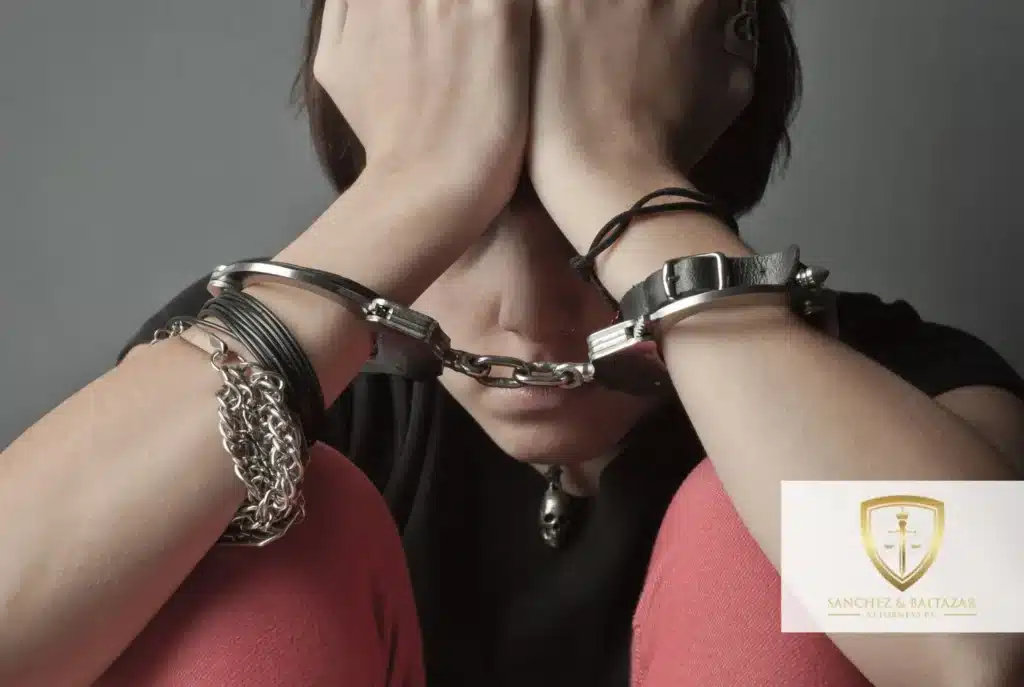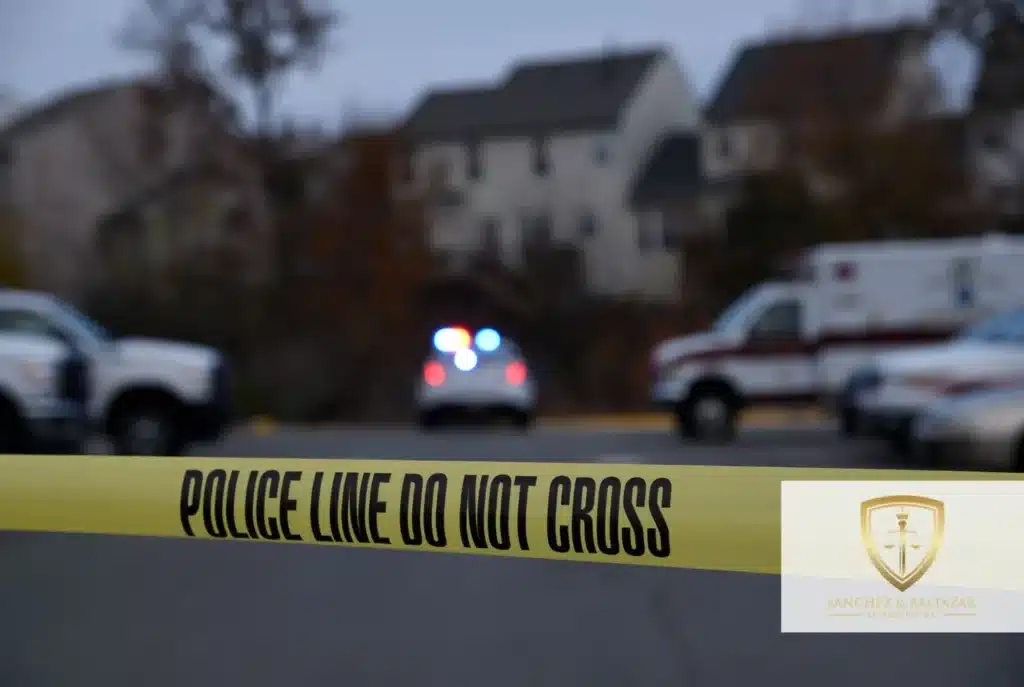When a minor commits a crime in California, questions often arise: Should parents be held responsible for their child’s actions? Should they face civil or even criminal liability? These are difficult questions, and the answers depend heavily on the circumstances, existing parental responsibility laws, and the legal system’s interpretation of parental liability.
With rising concerns over juvenile crime, including truancy, school shootings, and other serious criminal acts, society is increasingly interested in holding parents responsible. Certain offenses, such as truancy and curfew violations, are considered status crimes because they are only illegal based on the age of the person committing them, and age plays a significant role in determining parental responsibility and liability. But how far should that responsibility go?
Key Takeaways
- Parents Can Be Held Accountable for Their Child’s Actions Under Parental Responsibility Law: In California, parents may be held civilly or criminally liable for their child’s actions, especially when there’s evidence of negligence or failure to supervise. Parental responsibility law allows courts to hold parents accountable for damages or crimes committed by their minor children.
- Juvenile Defense Attorneys Are Essential: A qualified juvenile defense attorney plays a critical role in protecting the rights of both the child and the parent, navigating the complexities of legal responsibility, and pursuing alternatives to incarceration.
- Parental Responsibility Law Is Evolving: High-profile cases like the Crumbley case have intensified scrutiny of parental liability across the country, leading to renewed discussions about the legal and ethical boundaries of punishing parents for their children’s behavior. Parental responsibility law continues to develop as lawmakers and courts address its effectiveness and constitutional challenges.
Parental Responsibility Laws in California
In California, parents are responsible for their children’s crimes under specific legal theories. These include civil liability for damages caused by the minor and, in extreme cases, criminal responsibility. The state has enacted truancy laws and statutes targeting parental negligence—laws that may lead to charging parents when their minor children engage in serious criminal activity.
For example, under California Civil Code Section 1714.1, parents can be held liable for up to $25,000 in damages if their child’s behavior causes injury or property damage. Similar laws holding parents liable for their children’s actions exist in many states across the country.
This kind of parental liability is most often seen in cases of vandalism or physical assaults and is supported by the idea that parental oversight can prevent harm or property damage caused by minors. In criminal court, prosecutors may explore avenues such as contributing to the delinquency of a minor if it can be shown that the parent failed to exercise reasonable care in supervising the child.
Civil Liability and Parental Responsibility
Civil liability is a core component of parental responsibility laws in California and many other states. Under these laws, parents can be held financially responsible for the actions of their minor children, especially when those actions result in harm to others or damage to property.
This type of parental responsibility often comes into play when a child commits acts like vandalism, theft, or physical injury to another person.
In civil cases, the focus is typically on whether the parents exercised reasonable care to prevent their child’s behavior. If it is found that the parents knew—or should have known—about their child’s tendency toward certain actions and failed to take appropriate steps to stop them, they may be held liable for the resulting damages.
For example, if a minor child repeatedly engages in destructive behavior and the parents do not intervene, the law may require them to pay for repairs or medical expenses caused by their child.
The consequences of civil liability can be significant, including substantial financial burdens and potential damage to the family’s reputation. Understanding these responsibilities is crucial for parents, as failing to meet them can have long-lasting effects.
By staying informed about parental responsibility laws and taking proactive steps to supervise and guide their children, parents can better protect themselves from the serious consequences of civil liability.
The Crumbley Case and National Attention
Recent examples, such as the James and Jennifer Crumbley case in Michigan, where the parents of a school shooter were charged with involuntary manslaughter, have sparked national debate. In this case, James Crumbley, the father, and Jennifer Crumbley, the mother, were charged in connection with the Oxford High School shooting, where four students were killed.
This school shooting has become a landmark case in the discussion of parental responsibility. Legal scholars and lawmakers are closely watching how such laws evolve, particularly when there is evidence of gross negligence or a failure to act on warning signs.
Though the Crumbley case did not occur in California, its impact has reached school officials, prosecutors, and legislators across the country—including in California—who are reexamining how to hold parents accountable when tragedies occur.
The Impact of a Child’s Crimes on Families
When a child is involved in criminal activity, the effects ripple through the entire family. Parents often experience a profound emotional toll, grappling with feelings of guilt, shame, and anxiety about their child’s future.
Siblings and other relatives may also be affected, facing stress and uncertainty as the family navigates the aftermath of the crime.
The financial consequences can be just as overwhelming. Legal fees, court costs, fines, and restitution payments can quickly add up, placing a heavy burden on the family’s finances.
In some cases, parents may even face civil liability for their child’s actions, compounding the economic strain.
Beyond the immediate legal and financial challenges, families may encounter social stigma or isolation from their community. The fear of judgment from other parents, neighbors, or school officials can make it difficult to seek support or rebuild trust.
Given these challenges, it is essential for families to prioritize mental health and seek professional help when needed. Accessing counseling, support groups, or other resources can make a significant difference in coping with the consequences of a child’s crimes.
By reaching out for support, families can begin to heal and work toward a more positive future.
What Role Does a Juvenile Defense Attorney Play in California?
For families facing charges related to juvenile crime, the role of a defense attorney in California is vital. These legal professionals help protect the fundamental rights of both the child and the parents, especially in cases where criminal liability is being considered.
A skilled juvenile defense attorney will evaluate the circumstances of the crime, the child’s mental health, any parental involvement, and the family’s history. They may also argue that the parent did, in fact, exercise reasonable care and that the incident was unforeseeable.
Additionally, attorneys can advocate for educational programs, professional help, or community service over jail time, especially when the goal is rehabilitation rather than punishment.
In more complex cases involving parental negligence or encouraging criminal behavior, a defense lawyer may help mitigate the potential consequences for both the parent and child, particularly if the parent is being held criminally liable.

Legal Responsibility and Parental Involvement
Legal responsibility and parental involvement are deeply intertwined when it comes to preventing juvenile crime. Parental responsibility laws are designed to hold parents accountable for their children’s actions, especially when there is evidence that a parent failed to exercise reasonable care or supervision.
Courts may find parents criminally liable if they neglect their duty to guide, monitor, and support their children, particularly in cases where a lack of involvement leads to criminal activity.
Active parental involvement means more than just providing for a child’s basic needs. It includes monitoring their activities, staying engaged with their education, and being alert to signs of emotional or behavioral issues that could lead to delinquency.
Ensuring access to mental health support and maintaining open communication are also key aspects of responsible parenting.
The Supreme Court has recognized the fundamental right of parents to raise their children, but this right is not without limits. States have the authority to enforce laws that require parents to send their children to school and to intervene when a parent’s failure to supervise puts a child or others at risk.
When parents fail to meet these responsibilities, they may face serious consequences, including fines, jail time, or being held criminally liable for their child’s actions.
Ultimately, the law expects parents to play a significant role in preventing crime and supporting their children’s well-being. By exercising reasonable care and staying actively involved, parents can help reduce the risk of legal responsibility and support their children in making positive choices.
If challenges arise, seeking support from professionals and the community can help families fulfill their responsibilities and protect their rights.
Balancing Responsibility and Rights
While the instinct to punish parents after kids’ crimes is understandable, not every case of juvenile crime results from bad parenting. Many other parents, legal guardians, and caretakers do their best to supervise and guide their children, yet still face heartbreaking outcomes.
Holding parents responsible must be done carefully and with due regard to constitutional protections, including the fundamental right to raise one’s children. The Supreme Court has weighed in on the limits of parental responsibility, emphasizing that not all criminal behavior by a child should automatically trigger legal responsibility for the parent.
Conclusion: Prevention, Not Just Punishment
Parents are responsible for their children’s crimes to an extent, but this responsibility must be balanced with fairness and a focus on prevention. Early intervention, access to mental health care, cooperation with school officials, and attention to warning signs in the early years can all help reduce the risk of youth crime.
As California courts continue to navigate these issues, it remains crucial for anyone involved in a juvenile case—whether parent or child—to seek experienced legal representation. A knowledgeable juvenile defense attorney plays a significant role in protecting families and ensuring that the law is applied justly and wisely.
Need legal help in a California juvenile case involving your child? Speak to a defense attorney who understands the complexities of parental and juvenile law. At SB Legal, we can represent you in San Diego; call us for a free initial consultation!
Frequently Asked Questions
Can parents in California be arrested for their child’s criminal behavior?
Yes, in certain cases where there is strong evidence of willful neglect or active participation in the child’s criminal actions, parents can be arrested and charged—especially under laws related to contributing to the delinquency of a minor or if they directly facilitated the crime.
Are there any defenses available to parents facing criminal liability for their child’s actions?
Yes. Common defenses include demonstrating that the parent exercised reasonable care, had no knowledge of the child’s intentions, or took appropriate steps to prevent the behavior. A defense attorney may also argue that the incident was unforeseeable or that the parent lacked legal custody at the time.
How can parents reduce their risk of being held legally responsible for their child’s crimes?
Parents can reduce legal risk by staying actively involved in their child’s life, monitoring their behavior and online activity, addressing signs of emotional distress early, ensuring school attendance, and seeking professional support when needed. Being proactive shows a good-faith effort to prevent misconduct.

